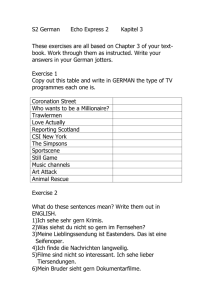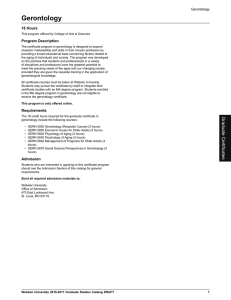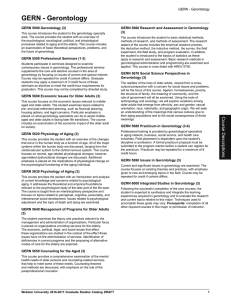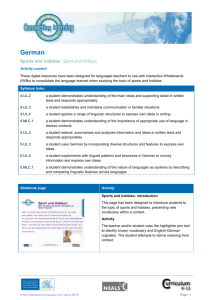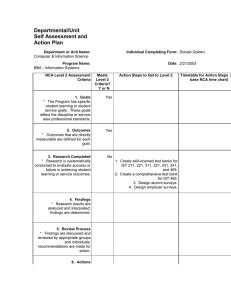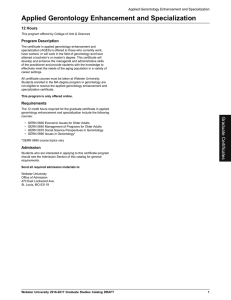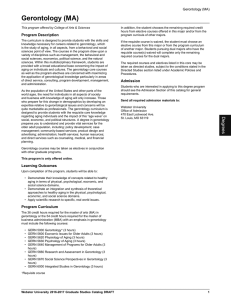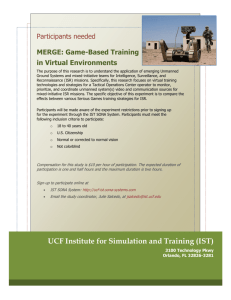Lesson 10
advertisement
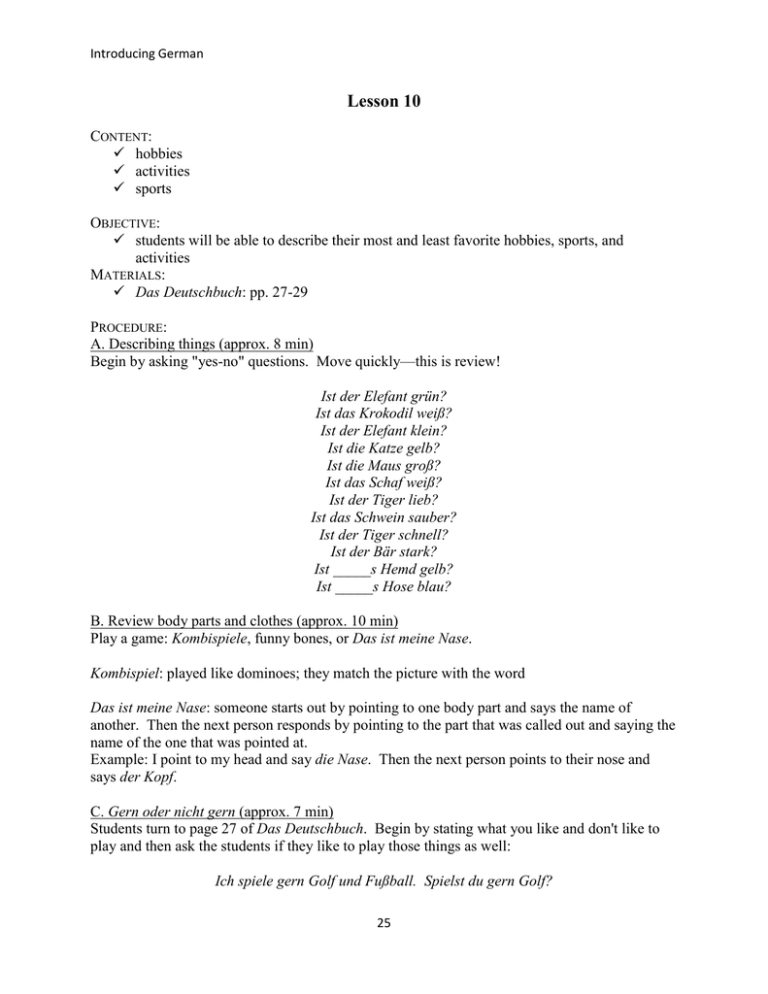
Introducing German Lesson 10 CONTENT: hobbies activities sports OBJECTIVE: students will be able to describe their most and least favorite hobbies, sports, and activities MATERIALS: Das Deutschbuch: pp. 27-29 PROCEDURE: A. Describing things (approx. 8 min) Begin by asking "yes-no" questions. Move quickly—this is review! Ist der Elefant grün? Ist das Krokodil weiß? Ist der Elefant klein? Ist die Katze gelb? Ist die Maus groß? Ist das Schaf weiß? Ist der Tiger lieb? Ist das Schwein sauber? Ist der Tiger schnell? Ist der Bär stark? Ist _____s Hemd gelb? Ist _____s Hose blau? B. Review body parts and clothes (approx. 10 min) Play a game: Kombispiele, funny bones, or Das ist meine Nase. Kombispiel: played like dominoes; they match the picture with the word Das ist meine Nase: someone starts out by pointing to one body part and says the name of another. Then the next person responds by pointing to the part that was called out and saying the name of the one that was pointed at. Example: I point to my head and say die Nase. Then the next person points to their nose and says der Kopf. C. Gern oder nicht gern (approx. 7 min) Students turn to page 27 of Das Deutschbuch. Begin by stating what you like and don't like to play and then ask the students if they like to play those things as well: Ich spiele gern Golf und Fußball. Spielst du gern Golf? 25 Introducing German Ich spiele nicht gern Karten. Spielst du gern Karten? Continue asking students questions and include more of the sports and hobbies in your questions. If the students seem capable, switch to some W-Fragen: Wer spielt gern Schach? Hebt die Hand! Wie viele spielen gern Schach? Was spielst du gern? …nicht gern? Was spielt er/ sie gern? Repeat the same procedure with the activities used with gehen on the handout: Ich gehe gern schwimmen. Gehst du gern schwimmen? Ich gehe nicht gern einkaufen. Gehst du gern einkaufen? D. Partnerarbeit (approx. 5 min) Students fill in the blanks with a partner on the same page of Das Deutschbuch. You will need to remind them that mein is used for males and meine for females. E. More freetime activities (approx. 5 min) Have the students turn to page 28 of Das Deutschbuch. Read these activities aloud and have them repeat. Students need to guess the English equivalents. Then ask the students questions to practice the new vocabulary. Ich schreibe gern. Schreibst du gern? Ich fotografiere gern. Fotografierst du gern? Ich koche nicht gern. Kochst du gern? You can follow up these questions by asking: Was macht er/sie (nicht) gern? By doing this, the students will practice the er/ sie forms. You will probably have to model this several times. F. Final Project (approx. 10 min) Spend the last ten minutes of class discussing the final projects. This project should represent something that the student liked best about what they learned in German class. The projects should be completed at home and brought to class for the next meeting. You might want to let the students brainstorm ideas of what they could do with what they have learned so far. Suggestions: write a poem or concrete poem, make a family tree with descriptions of their family members, design an outfit and label it, describe a pet, create a monster and label it. Hopefully, they will be able to display their projects on a bulletin board somewhere around school (the teacher will decide and handle this). 26 Introducing German Refer the students to page 29 of Das Deutschbuch so that they can see examples of a poem and a concrete poem. [*** Consider giving the students an assignment for next time: designing and labeling an outfit. Then the teacher can display their pictures in the classroom. Please discuss this first with the teacher. ***] 27
